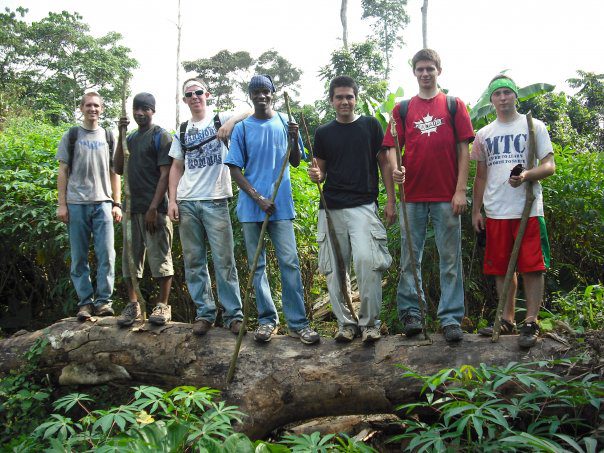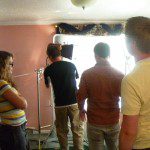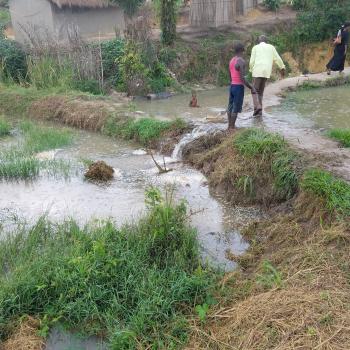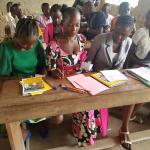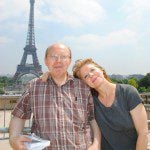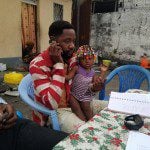This is a guest post by Kendell Coburn, a young man who was called to be a missionary in the Democratic Republic of Congo, and served in Cameroon. He was in the MTC branch which my husband and I helped with. When I was filming in the Congo last August, I met a young Cameroonian man, Jean-Claude Olama, who had just finished his mission and was headed back to Cameroon the next day. I mentioned Kendell Coburn’s name, and Elder Olama said, “He baptized me!” Kendell and I talked after I returned to the States. He told me that he had planned to tell me about Elder Olama, who was near Kinshasa, but thought there was no way I would meet him. There was a window of about a half an hour where the possibility of meeting him was available. I met him. Another regular miracle. Kendell told me about his CTR ring, a gift his parents had given him before his mission, something which was precious to him. “I gave it to Jean-Claude,” he said.
Kendell’s essay is followed by a few more thoughts on overcoming prejudice. I invite readers to contribute their ideas and experiences.
As a missionary, Kendell faced his own prejudice and prejudice from some in Cameroon. These are precisely the dynamics we deal with in Heart of Africa. Kendell writes about his own experience beautifully here:
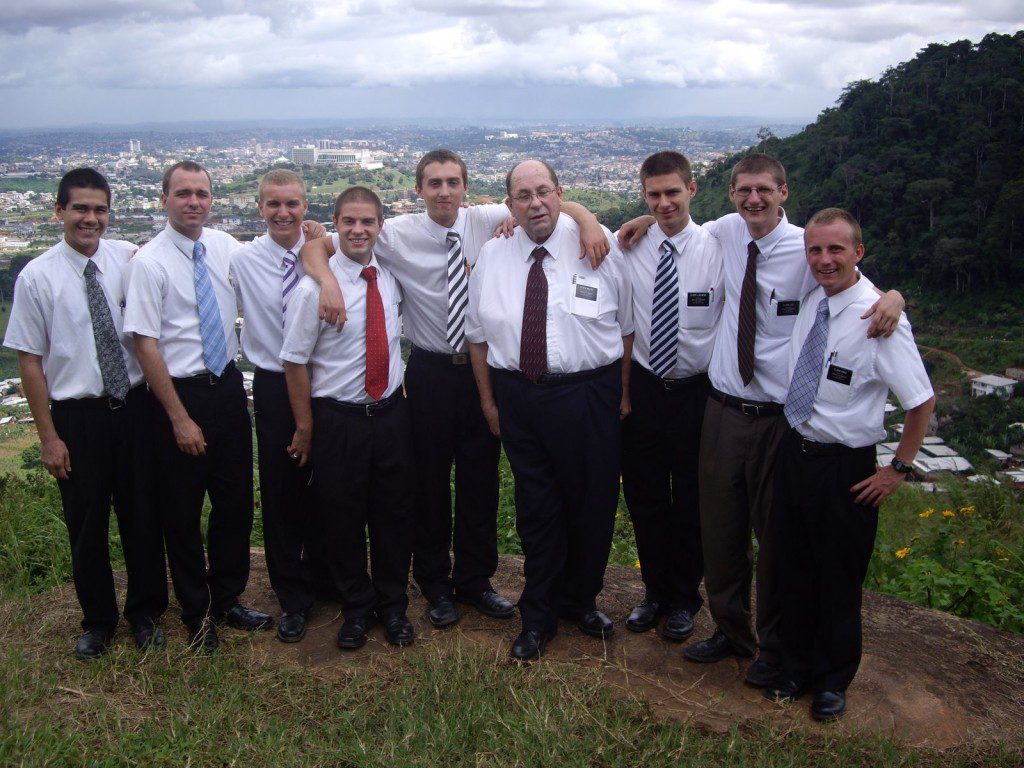
My parents are wonderful people. They taught me that nobody owes me, and if I want something I need to work towards it. I was always serious and mature for my age. At the age of 19 I chose to serve a two-year mission. I was expecting to stay in the United States or possibly go to Europe, so you can only imagine how big my eyes became when I read that I would be serving in the Congo, Kinshasa mission. I was severely uneducated. The first thing that popped in my mind was the movie Congo based on Michael Crichton’s book, but uneducated did not mean I was prejudiced by any means. I was nervous but excited.
I learned I would be headed to Cameroon, where I found some very loving people. I was amazed at their spirituality, their ability to perform laborious tasks for very little money. Hard work took on a different meaning to me within the first few days of being there as almost everything was do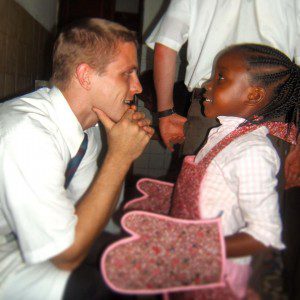 ne by hand. I grew up laboring by my father, and I understand just how heavy cement is. But when I saw people forming a fireman’s brigade to get cement to the top of a building, I felt extremely empathetic towards them.
ne by hand. I grew up laboring by my father, and I understand just how heavy cement is. But when I saw people forming a fireman’s brigade to get cement to the top of a building, I felt extremely empathetic towards them.
One thing I did not understand before arriving in Cameroon was the effects of Colonialism. As a country so rich in natural resources yet still underdeveloped, there is no doubt that colonialism had its negative impacts, leaving a bad impressions in people’s minds regarding whites. Name calling occurred frequently and totally caught me off guard. The first words I learned in new dialects were always “white.” I found myself becoming defensive, inwardly harboring ill feelings as I felt I was giving up so much to be there sharing something so special and close to my heart.
It didn’t take very long for me to recognize these feelings as potential poison and I determined to do something about it. I talked with my mission president, who asked me to do as Jesus-Christ would do; whenever I was met with a negative comment to extend a blessing such as “God bless you.” I was determined to change my attitude to one of love and compassion.
The very next day I had not even gone a quarter mile from our apartment when I was met by a dear older lady whose back was curved due to the heavy burdens she literally carried throughout her life. I thought here is my opportunity to start my day off on a good note and to show compassion. I had barely gotten two sentences out when I was slapped. Literally slapped. Over the next few days I learned by heart the phrase “no good deed goes unpunished.”
I am embarrassed to even say those ill feelings every existed within me, because I came to love and understand a people so intimately that I often identify myself as part Cameroonian. It didn’t take very long for me to realize I was not giving up so much to be there; I was blessed beyond belief to be there. I can’t wait for the day when I am able to go back to Cameroon and to associate with such a wonderful people. I would love to be called white again. The more I learned the more I understood it as a way of saying “bonjour.”
The day I decided to take action against any ill feelings inside of me was one of the best decisions of my life. It prevented me from becoming callous and allowed me to feel love, compassion, empathy, and most importantly charity towards such a deserving people.
Kendell’s words remind me of another missionary’s. John Bringhurst, who served among the Kekchi people in Guatemala and became fluent in their language (and continues to visit the area and provide health care as a medical doctor) said to me once, “Isn’t it interesting that we think we’re going to save the Indians, but they end up saving us.”
My uncle gave these beautiful insights:
My only experience in Africa was the ten days or so spent in Uganda about a dozen years ago. I thought I was without prejudice, but that was only academic. Deep down in I did have prejudices, and they were literally purged by that relatively short visit to Africa. Every person we met and dealt with was black–the good and the bad, the wise and the foolish, the large and the small, the diligent and the lazy. All the doctors were black. All the patients were black. All the shopkeepers were black and all the pickpockets were black. The entire human universe was black. I realized that a world of black people is no different from a world of white people. I think I could have said that before going to Africa, but I would not have felt it as I did after that visit. When I returned, I shared my experience with my children and their spouses and suggested that a way to learn if you have prejudices is to honestly answer this question: Is there anything wrong with being black? Any hesitation or qualification to the answer “no” reveals a prejudice. It was an especially interesting exercise for our first two sons in law who wondered about past efforts to explain Church policy on the priesthood. Today, with the clear statement by Church leaders that there is no racism in our doctrine, I think it would be much easier for them to answer. When we returned from Peru in 1984 I sensed Africa would be the Church’s new frontier, but I think what has happened exceeds all I anticipated back then.
It is my deepest hope that as we film and show Heart of Africa, we on the film team–we Americans, Canadians, South Africans, Cameroonians, Ghanians, can feel our hearts swell in love, and that those who see our work may likewise grow in wisdom, unity, and compassion.


